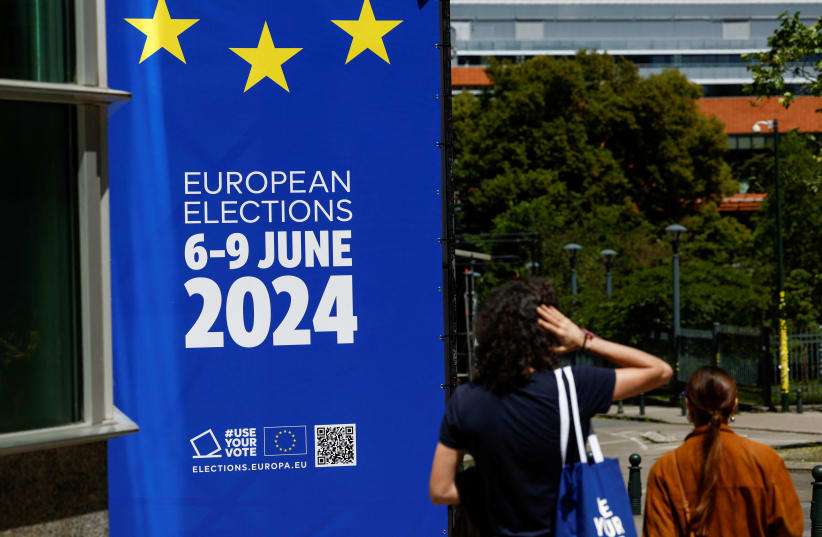The recent European Parliament (EP) elections saw notable gains for various right-wing parties. Many around the world wonder what the results mean for the Jewish community in the old continent and EU-Israel relations. Well, the rise of the right in the EP poses significant challenges and opportunities for European Jewish communities and the pro-Israel community.
Engaging with the right
The primary challenge is determining how to engage with right-wing parties. Different Jewish communities have reacted to the right in varying ways. The Jewish community in France has disengaged entirely with Marine Le Pen's National Rally party. (This may need to change considering National Rally won over 31 % of the vote in the European Parliament election.) In the Netherlands, the Jewish leadership engagement with the right-wing parties was minimal.
Should these right-wing parties continue to ascend to power, Jewish communities will need to find effective ways to interact with these key decision-makers, and therefore now is the time to strategize on future interactions.
Another significant challenge is these parties' stance on European Jewish life and the State of Israel. Notably, right-wing party members in several European countries are among the few open supporters of the Jewish community and Israel, like Geert Wilders, the leader of the Dutch Party for Freedom, who has unconditionally supported Israel and the Dutch Jewish community on social media.
Combatting European antisemitism with a marginalized right
A third challenge, and perhaps the most significant challenge for European Jews, involves combating antisemitism while dealing with marginalized right-wing parties. Progressive politicians, who often embrace broader agendas, have made it difficult to implement a pro-Israel/pro-Jewish agenda in the public sphere. They often integrate antisemitism into a broader fight against racism rather than addressing it as a stand-alone issue with severe consequences.
The inclusion of right-wing parties in the Council of the European Union (EC) presents another dilemma as Jewish leaders must choose between those who publicly defend Jewish interests and those who, despite advocating against antisemitism, fail to act or offer pragmatic support.
Furthermore, while security is essential for protecting Jewish community interests and individuals, reliance on heavy security measures is not sustainable in the long run because it can weaken internal resilience by affecting local communities, making them vulnerable to the same bigotry.
The Way Forward
European Jewish leadership must be prepared to navigate these long-term challenges and choose between progress and preserving the European Jewish way of life.
The Council of the European Union is close to imposing sanctions on Israeli Jews, with negotiations often prioritizing state gains over ideological positions. Although the continuation of European Jewish life is in Europe's interest, it must be recognized and supported at the national level first. Only then can the EU Member States collectively form a common view and action plan.
Our commitment to a progressive European society has been undermined by progressives who abandoned us at the first opportunity. European Jewish communities must understand the challenges and difficulties of engaging with certain parties but find effective ways to do so to preserve our European Jewish interests. In Italy, for example, the Italian-Jewish leadership has accepted the rise of the right without abandoning its criticism. We need to advocate for change in other countries across Europe and avoid political isolation.
At the end of the day, realpolitik is precisely about that: supporting politics or principles based on practical considerations rather than moral or ideological ones.
Vlad Olteanu and Nuno Wahnon Martins are European Union experts and European affairs advisors based in Brussels, Belgium.
This op-ed is published in partnership with a coalition of organizations that fight antisemitism across the world. Read the previous article by Yossi Kuperwasser.
